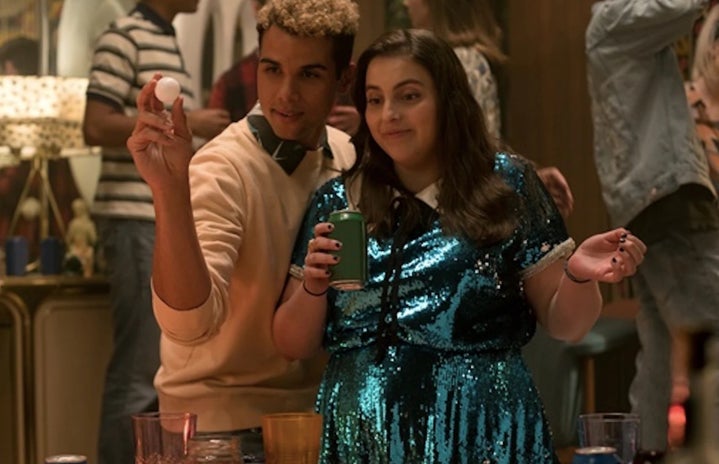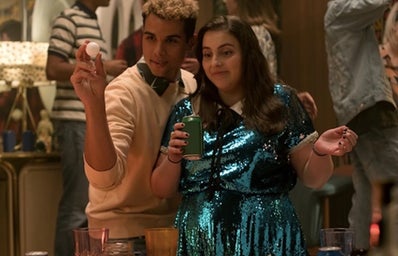Edited by Lasya Adiraj
Here’s a confession. I’m almost twenty years old, in my first year of college, but I’ve never been to a party. And I wouldn’t really count the three hours I spent in a club with my classmates as one because literally, all I did that night was take care of my severely inebriated friends. Growing up in Delhi with overprotective Punjabi parents but constantly being fed American teen movies, my idea of “fun” in high school seemed unattainable by my reality. Until last year, I’d been beating myself up for not trying harder, thinking there were so many things I could have done to experience what everyone else around me was. But watching Olivia Wilde’s directorial debut Booksmart was hands down, one of the most mentally reassuring experiences I’ve ever had.
This underrated masterpiece is about two brilliant, hilarious overachievers, Amy and Molly, party-hopping to cram the years of fun they’ve missed into the night before their high school graduation. What triggers them to finally stop looking down at parties and start cutting themselves a little slack is realizing that many of the same classmates that partied every week, goofed around in class, didn’t care too much to constantly suck up to every teacher, dated, and had real relationships with more than one person ALSO got into the same ivy leagues they did.
While watching the beginning of the film, I thanked myself for not being a stuck-up killjoy like Molly. But then I understood where she came from. She’s been convincing herself her whole life that “fun” and success are mutually exclusive, that she’s better than everyone else her age because she chose the latter, and so, their opinions of her do not matter to her. She’s actually proud of having a “vadge stuffed with diplomas.” Immediately, all I could think of is how we’ve all been told the same thing and how I thought that way for years too. But really, it’s not true, and some of us took it a lot more seriously than others. Like the scary but so-wise Annabelle puts it, “[they] just don’t only care about school.”
I felt a series of flashbacks after that scene – all those times I’d been judged for confessing that I wanted to go to a party, wanted to properly date someone. I’d been wired to champion the ultimate teenage experience I’d see on Netflix but be ashamed to actually want to live it. Zero logic whatsoever. And I do blame my parents, my scared friends, and my constant desire for adult validation, but most importantly, I blame myself for not being in control of my own choices and decisions and using them and this very notion as excuses.
Speaking of adult validation, I literally see myself in Molly and Amy when they gush to their teacher about the latest crossword or sink with overwhelming anxiety the first time they’re lying to their parents. At the same time, when Molly’s trying to convince Amy to go to the party with her, Amy points out how going isn’t necessary because they’re already having fun without them. But Molly insists “THEY [that is, their classmates] need to know.” And I can’t help but relate to her here too. Sometimes I almost feel like I used to feed on approval from adults around me, maybe because my mind refused to comprehend they’re not actually entitled to the decisions about my life. And at the same time, I felt like I had to prove that I was living the “cool” life I always wanted. Thank you Instagram.
This persistent need to please everyone including yourself never ever turns out to be as satisfactory as you think it’ll be, and I realised this when Molly and Amy are actually having fun at the party and aren’t anxious about getting caught. They’re there for themselves, their classmates are more welcoming than they thought, and either way, they really don’t care what people think. They’re satisfied.


